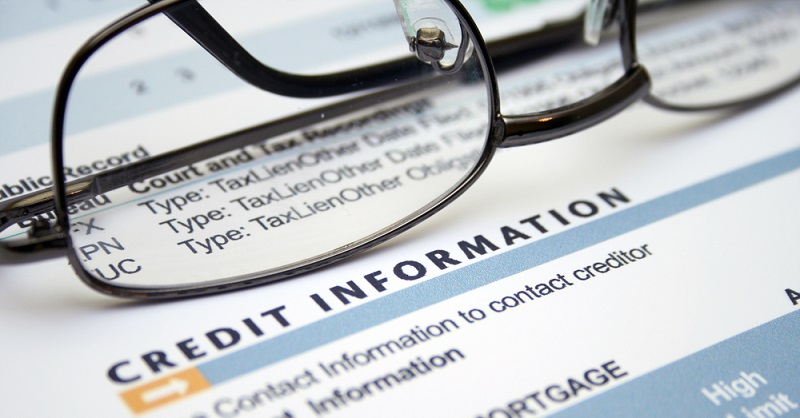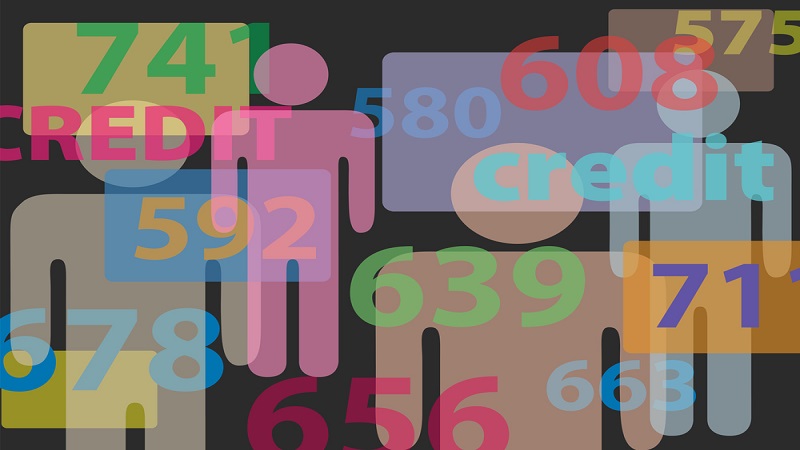- Home
- Your Credit
Credit Report Score Range Meaning Explained in Terms You Can Understand!

It is easy to fully understand the credit report score range meaning and how it impacts your daily life. Many of us need our credit scores explained because they seem so confusing!
Your credit score reflects the information contained in your credit report. It’s a single number that can determine whether you’re approved or denied for an auto loan, home loan, credit card, or personal lines of credit.
Unless you can pay for big purchases upfront in cash, a low credit score can result in higher down payments and more credit denials in the future.
Most people don’t fully understand what a credit score is or how it impacts their daily lives. Keep reading to explain credit scores in simplified language that you can understand and then improve your credit score.
Credit Report Score Range Meaning And Why Is Your Credit Score Important?
Here’s the basic credit report score range meaning for consumers. When you apply for any credit, lenders have no way of looking into the future to determine how you will handle the repayment. They don’t know if you will make your payments on time or if they will ever recover the money they loan you plus the interest they need to profit from the loan.
What they can do is look at your credit history to see how you have handled credit cards, loans, and other financial matters in the past.
You may argue that your past doesn’t predict your future because your current financial standing is much different from your standing in the past, but lenders have no way of knowing that you will treat their loans differently. All they can do is use your past behaviors to predict future behaviors.
Your credit score is the fastest and simplest way for lenders to size up your creditworthiness. It’s a condensed representation of everything found in your credit report, so think of it as a single number that reflects your past financial behavior.
Credit Report Score Range Meaning! And How Is Your Credit Score Determined?

You now know that your credit score is determined from information found in your credit report, but exactly how is that calculated? The credit bureaus base a certain percentage of your score on the information found within your credit report. The weight that the reporting agencies give to each factor in the calculation is your best insight into improving your credit score. Here is the credit report score range meaning for consumers!
This breakdown shows how it is calculated:
1. Payment History – 35%
Since payment history is the most significant percentage of your credit score, making timely payments on all credit cards and loans is the best thing you can do to keep your score high. The more late and missed payments you accumulate, the lower you can expect your score to drop.
2. Credit Utilization – 30%
Credit utilization refers to the amount of available credit that you have used. The following steps will help you calculate your current credit utilization ratio, which is simply the percentage of available credit that you are currently using:
- Add up all the maximum available credit or all of your credit cards and lines of credit. For open lines of credit, the highest balance ever reported is often used as your maximum credit limit.
- Add up the current balance on all of those accounts. This is the total amount of credit currently in use. Note that the current balance you see on the lender’s website or app may differ from the final balance reported to the credit bureaus.
- Divide the total amount in use by the total maximum balance for all accounts and multiply that number by 100. That is the percentage of credit that you are currently utilizing.
The higher your credit utilization score, the more it will negatively impact your credit score. That means simply not using all of the credit available to you can boost your credit score.
3, Length of Credit History – 15%
Look at your credit report to determine your oldest credit card, loan, or line of credit. The further back, the more it will benefit your credit score. That means you have the opportunity to boost your credit score over time by simply maintaining your lines of credit. Each year that you keep active accounts, the better your length of credit history looks.
4. Credit Types – 10%
Do you have a diverse range of credit accounts? Or do you have a long list of credit cards (revolving credit) with no loans (installment credit)? A good mix of credit account types will help boost your credit score, though this has far less impact on your score than on-time payments and low credit utilization.
It is possible to boost your credit score by securing new accounts that create a more diversified credit profile. Before you do that, take a look at the last factor used to determine your credit score.
5. New Credit Accounts – 10%
How many new credit cards have you opened? How many hard inquiries are reflected on your credit report? What about new loans or other lines of credit? Those new accounts can hit your credit score if you accumulate them too quickly.
For example, if you spend a Saturday afternoon applying for credit cards at all of your favorite stores, you will have a flurry of hard inquiries on your credit report. If you’re approved for any of those credit cards, you will have a sudden flood of new cards hitting your credit report shortly after.
That can have a modest impact on your credit score, which you will likely overcome rather quickly by making on-time payments on all of those new credit cards.
Credit Report Score Range Meaning and Why Are They Different from Each Bureau?

Credit bureaus don’t always receive the same information, and therefore the credit report score range meaning can be a little different. One lender may only report to Equifax while another reports to Equifax, TransUnion, and Experian.
Each reporting agency will calculate your credit score from their information. That’s why an awareness of the information on all three credit reports is so important.
Credit Report Score Range Meaning And How are Credit Scores Used?
Credit cards are used to quickly size up your credit history without viewing the full details contained in your credit report. Some credit card lenders base approvals solely on credit scores, and that’s how they can approve or deny your application instantly when you apply online or at a store cash register.
Other lenders use credit scores as an initial financial test. If you have at least their minimum required score, they may look into your credit report for the details that will ultimately make the decision for or against your application.
For instance, mortgage lenders are likely to look at the details or your credit report rather than relying only on your credit score.
Credit Report Score Range Meaning And How Your Credit Score Impacts Your Quality of Life!
Here is the credit report score range, meaning for the average consumer. Credit scores can determine the type of car you drive, the home you live in, and the college that your children attend. Your ability to drive a new car off the lot without paying a hefty down payment often comes down to your credit score.
The same goes for your ability to purchase a home, fund college for your children, or secure a business loan to start your own company.
Unless you’re wealthy enough to make big purchases out of pocket, you need your credit score to remain as high as possible. You can’t always plan for significant expenses, and you don’t want your score to limit your quality of life when the need does arise.
Free 5-Day - Start Repairing Credit Challenge - Do It Yourself - Including A Live Expert Question & Answer Session.

Related Articles:
- Annual Credit Report With No Score? How to Fix That
- Different Types of Credit Scores and Why They Differ
- FICO Credit Score Range - What’s a Good Credit Score?
- Credit Score After Bankruptcy – What to Expect
- Better Credit Booster News and Tips
- 101 Credit Tips to Boost Credit Score Points, Today!
- Frequently Asked Credit Repair Questions and Answers (FAQ)






